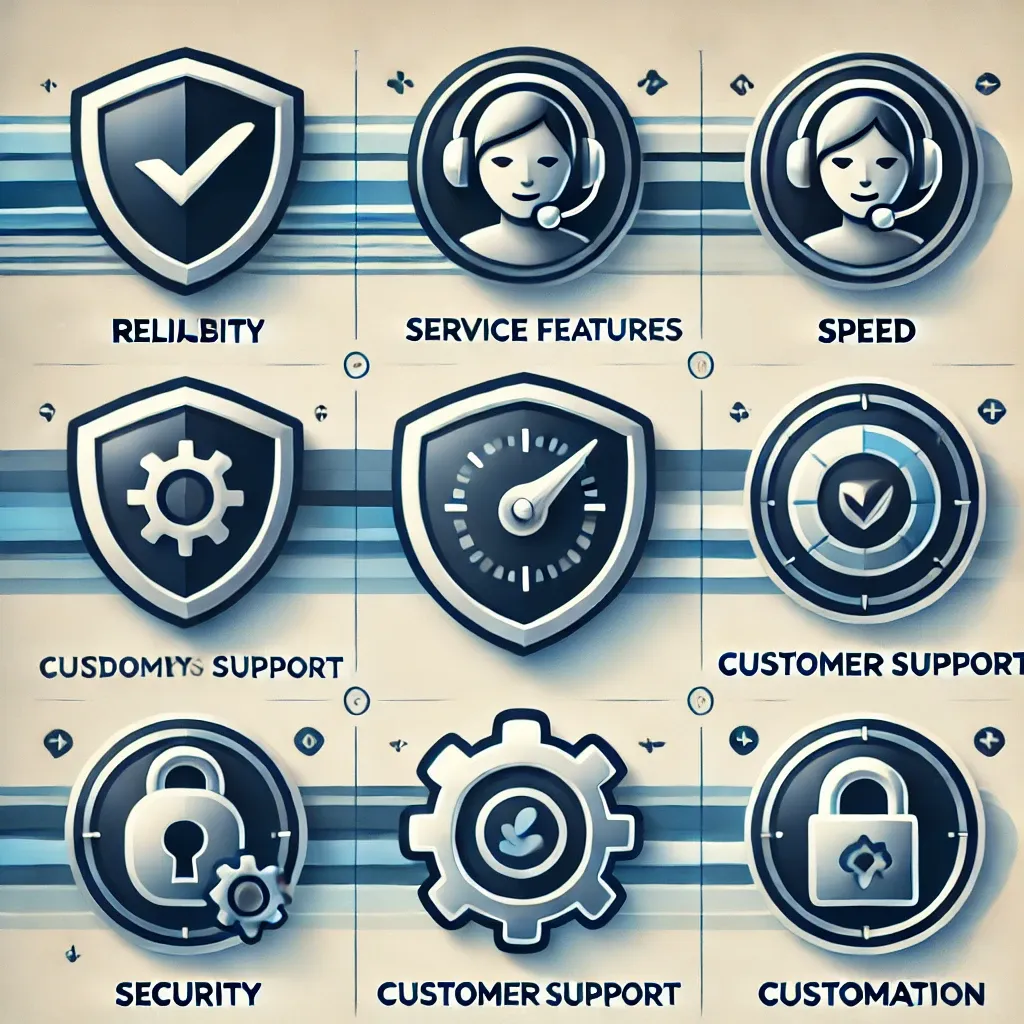Full Service Data Center vs. Traditional Colocation Provider: A Comprehensive Comparison
In the ever-evolving landscape of IT infrastructure, businesses constantly seek the most efficient, secure, and cost-effective solutions for their data storage and management needs. Two prominent options are Full Service Data Center or Traditional Colocation provider. While both aim to provide robust environments for housing IT equipment, their approaches, features, and benefits vary significantly. Understanding these differences is crucial for organizations making strategic decisions about their data management strategies.
Traditional Colocation: An Overview
Traditional colocation, often referred to as “colo,” involves renting space in a data center facility. In this model, businesses own and manage their hardware, such as servers, storage devices, and networking equipment, but benefit from the physical infrastructure provided by the colocation facility. This infrastructure typically includes power, cooling, physical security, and internet connectivity.

Key Features of Traditional Colocation:
1. Ownership and Control: Businesses retain full ownership and control over their equipment. This means they can configure, maintain, and upgrade their hardware as needed without external interference.
2. Cost Efficiency: By sharing the physical infrastructure with other tenants, businesses can reduce costs associated with power, cooling, and building maintenance.
3. Scalability: Colocation facilities offer the flexibility to scale up or down based on business needs. Companies can rent more space or reduce their footprint without significant capital expenditure.
4. Location Choices: Organizations can choose colocation facilities in strategic locations to optimize latency, regulatory compliance, or disaster recovery planning.
Challenges of Traditional Colocation:
1. Management Overhead: Businesses must have the expertise and resources to manage and maintain their own hardware. This can be resource-intensive and distract from core business functions.
2. Capital Expenditure: Initial investment in hardware can be significant. Upgrading and replacing equipment also require ongoing capital outlay.
3. Responsibility for Security: While the facility provides physical security, businesses are responsible for the security of their own equipment and data.
4. Contract Flexibility and Customer Support: Larger traditional data centers, such as Coresite, Equinix, and Digital Realty, often have rigid contracts, playing games with power and capacity by prioritizing the highest-paying customers. They may increase power costs as the data center fills up. These providers typically offer basic services with minimal customer support, giving you a key card and leaving you to manage on your own.
Full Service Data Centers: A Detailed Look
Full Service Data Centers take a more holistic approach to IT infrastructure management and they are loaded full of benefits not seen in the “traditional” model. In this model, the data center provider offers a comprehensive suite of services that go beyond merely providing space and power. These services can include free help, free ancillary services, detailed white-glove support to customers, hardware procurement, installation, maintenance, security, backup, disaster recovery, and some even offer managed services such as cloud integration, virtualization, and IT support.
Key Features of Full Service Data Centers:
1. Comprehensive Solutions: Providers offer end-to-end solutions, including hardware and software management, reducing the burden on in-house IT teams.
2. Operational Efficiency: By outsourcing IT infrastructure management, businesses can focus on their core competencies, leading to increased operational efficiency.
3. Enhanced Security: Full Service Data Centers typically offer advanced security measures, including both physical and cyber security, ensuring robust protection for critical data.
4. Flexibility and Scalability: These providers offer scalable solutions tailored to the specific needs of each business, enabling seamless growth without the need for significant capital investment.
Conveniences and Cost Savings with Full Service Data Centers:
Full Service Data Centers, such as Metanet, offer significant conveniences and cost savings that traditional colocation facilities often do not. These benefits include:
– No-Cost Remote Hands: Unlike traditional data centers where remote support can be expensive and may not involve trained engineers, Full Service Data Centers offer remote hands services at no extra cost.
– Free Installs and Racking: Providers handle the installation, racking, and stacking of gear without additional charges, saving businesses many long hours, losing their engineers for up to a week on data center installs instead of spending time on more important work. Sometimes thousands of dollars are saved from the remote hands benefit alone, not to mention the man hours saved.
– Free Hardware Parts: Many Full Service Data Centers maintain bins of hardware parts like cables, network cards, and RAM, which are available at no cost to customers.
– KVM over IP, Laptop, and 4G/Wi-Fi: In case of connectivity issues or hardware problems, customers can use KVM over IP, laptops, and 4G Wi-Fi for free, ensuring minimal downtime.
– Additional Equipment: Free use of PDUs, power strips, and rack shelves reduces the need for capital expenditure on these essential items.
– Custom Solutions: Providers like Metanet have even gone so far as to 3D print custom shelves for specific customer needs, such as securely mounting Mac Minis in rack space.
– Free Consulting: Full Service Data Centers often provide complimentary consulting services, helping businesses with fewer engineers on staff to optimize their IT infrastructure.
– 24/7 On-Site Staff: Unlike traditional data centers that are often unmanned, Full Service Data Centers have staff available around the clock to assist with any issues.
– Site and Project Managers: Dedicated site and project managers help guide installations and other projects, ensuring smooth operations.
– Power Planning Assistance: Full Service Data Centers assist customers with power planning, helping them measure and manage electric usage to avoid outages and optimize efficiency.
– Flexible Contracts: Full Service Data Centers offer more flexible contracts, such as shorter term minimums, ramp ups, or incremental leased power and space, vastly reducing cash burn (Opex) and providing superior contract terms that better suit the needs of the customer.
– Advanced Customer Portals: These providers often use sophisticated software and login portals, allowing customers to monitor and manage their services more effectively. They can see detailed usage, access support, and often benefit from special terms or discounts in their master services agreements.
Consulting and Network Provider Selection
Full Service Data Centers, such as Metanet, provide free consulting services to assist in choosing network providers or ISPs. They can create Requests for Quotation (RFQs) from various providers, help procure and provision circuits inside the data center, and even negotiate and procure ISPs for customers’ business office locations. This ensures that network connectivity is optimized for speed and efficiency while minimizing costs.
Third-Party Relationships and Backup MSP Services
Full Service Data Centers often maintain relationships with other IT companies and telecommunications businesses, serving as a valuable third point of contact. If a company uses a Managed Service Provider (MSP), a Full Service Data Center can assist as a third party to moderate between the client and the MSP. In case the MSP is replaced, the colocation provider can act as a backup MSP, retaining the knowledge of the network and ensuring a smooth transition. This continuity is crucial, especially when outgoing MSPs may be uncooperative in transferring documentation.
Comparing Traditional Colocation and Full Service Data Centers
Ownership and Control vs. Comprehensive Management
– Traditional Colocation: Businesses maintain full control and ownership of their hardware. This allows for customized configurations and direct management but requires significant IT expertise and resources.
– Full Service Data Center Colocation: Colocation Providers handle the majority of management tasks, including hardware procurement, installation, and maintenance. This reduces the operational burden on businesses and allows them to focus on core activities.
Cost Efficiency vs. Value-Added Services
– Traditional Colocation: Initial capital investment in hardware can be high, but ongoing costs are typically lower as businesses share infrastructure expenses.
– Full Service Data Centers: Although service costs can be higher, the value-added services (e.g., free remote hands, hardware parts, and consulting) can lead to overall cost savings and operational efficiencies.
Scalability and Flexibility
– Traditional Colocation: Offers flexibility in terms of space and power scalability, but businesses must manage their own hardware scaling.
– Full Service Data Centers: Provide scalable solutions tailored to business needs without the need for significant capital investment. This includes comprehensive support for scaling IT infrastructure seamlessly.
Security and Support
– Traditional Colocation: While physical security is provided, businesses are responsible for their own data and hardware security. Remote hands services, if available, are often limited and costly.
– Full Service Data Centers: Offer enhanced security measures, including physical and cyber security, with 24/7 on-site support. Providers like Metanet offer no-cost remote hands, KVM over IP, and other critical support services, ensuring minimal downtime and robust security.
Contract Flexibility and Customer Support
– Traditional Colocation: Larger providers often have rigid contracts, play games with power and capacity, and may prioritize the highest-paying customers. Their customer support is usually minimal, and their accounting departments may be outdated, lacking even basic customer portals.
– Full Service Data Centers: Offer flexible contracts that save on cash burn, sophisticated software and customer portals, and personalized support from day one. Providers work harder to ensure customer satisfaction, offering hand-holding through complex processes and continuous support
Both Full Service Data Centers and Traditional Colocation offer distinct advantages and cater to different business needs.
Traditional colocation is ideal for businesses that require control over their hardware and have the resources to manage it. In contrast, Full Service Data Centers provide a turnkey solution for organizations seeking comprehensive support and enhanced security. By carefully evaluating your business requirements and strategic goals, you can make an informed decision that optimizes your IT infrastructure and supports your long-term growth.


